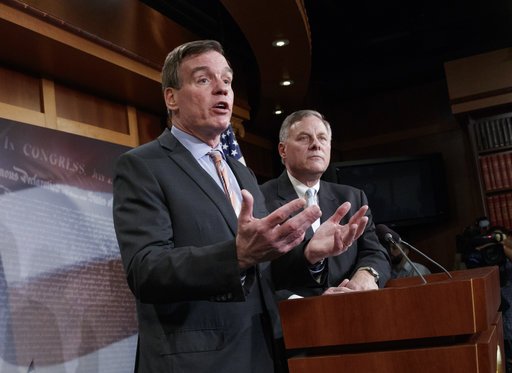WASHINGTON — Lawmakers heading the Senate intelligence committee focused squarely on Russia as they opened a hearing Thursday on attempts at undermining the 2016 U.S. presidential election.
"Russian President Vladimir Putin ordered a deliberate campaign carefully constructed to undermine our election," Virginia Democratic Sen. Mark Warner said.
Earlier Thursday, Putin again dismissed what he called "endless and groundless" accusations of Russian meddling in the U.S. election, describing them as part of the U.S. domestic political struggle. He also said he is ready to meet with President Donald Trump at a coming arctic summit.
The hearing Thursday is to address how the Kremlin allegedly uses technology to spread disinformation in the U.S. and Europe. Warner and the panel's chairman, Sen. Richard Burr, R-N.C., provided an update Wednesday of the committee's investigation into activities Russia might have taken to alter or influence the 2016 elections and whether there were any campaign contacts with Russian government officials that might have interfered with the election process.
"There were upwards of 1,000 paid internet trolls working out of a facility in Russia, in effect, taking over series of computers, which is then called a botnet," Warner told reporters on Capitol Hill on Wednesday.
Warner said the committee is investigating to find out whether voters in key states, such as Wisconsin, Michigan and Pennsylvania, might have been served up Russian-generated fake news and propaganda along with information from their traditional news outlets.
"We are in a whole new realm around cyber that provides opportunity for huge, huge threats to our basic democracy," Warner said. "You are seeing it right now."
Read Friday's Arkansas Democrat-Gazette for full details.
